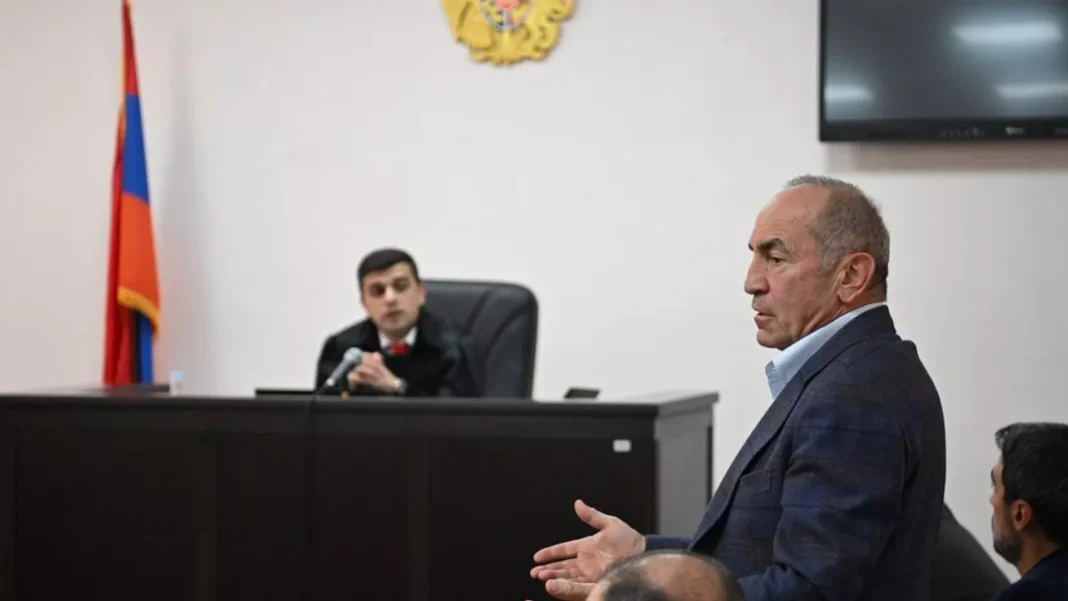Yerevan, Sept. 8
Former Armenian president Robert Kocharyan told a court hearing on Monday that the charges against him amount to criminalizing the performance of his constitutional responsibilities.
Kocharyan, who is accused of attempting to overthrow the constitutional order, said the case has been political from the outset, Sputnik reports.
“This indictment was prepared in certain offices and then handed to the prosecutor’s office,” he argued, insisting that the allegations were “stitched together” and amounted to a crime themselves.
According to Kocharyan, prosecutors cited as motives his alleged effort to “preserve the desired system of power” and to “transfer authority to a close associate, Serzh Sargsyan.” The former leader countered that the “system of power” is defined by Armenia’s Constitution and could only be changed through a referendum.
“What should a president do? Preserve the constitutional system. That was my sacred duty. It turns out I am being accused for fulfilling my presidential obligations. This is absurd,” he said.
He further denied accusations that he had transferred power to Sargsyan, stressing that the presidency is determined by election, not appointment. At the time, Sargsyan was prime minister and head of the Republican Party, which won the parliamentary elections.
The case against Kocharyan and several other senior officials — including former defense minister Seyran Ohanyan, ex-deputy premier Armen Gevorgyan, and former CSTO secretary general Yuri Khachaturov — is tied to the March 1, 2008 unrest in Yerevan, when post-election protests escalated into clashes that left ten people dead.
Armenia’s Constitutional Court declared Article 300.1 of the Criminal Code, the original basis of the charges, unconstitutional in 2021, leading to the suspension of prosecutions. However, the case was revived in September 2024 after a court reclassified the charges.
The next hearing is scheduled for September 19.
Background: March 1, 2008 Events
After disputed presidential elections in February 2008, opposition supporters led by Armenia’s first president Levon Ter-Petrosyan staged mass protests in Yerevan. Demonstrations on March 1 turned violent as clashes erupted between security forces and protesters.
Ten people were killed, hundreds injured, and the unrest left a deep mark on Armenian politics. The episode has continued to shape debates over accountability, democracy, and the role of security forces in the country.


